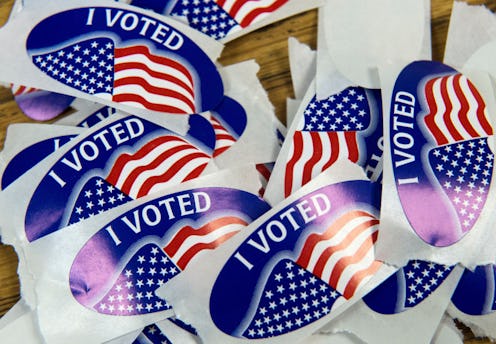News
Why Arizona Won't Allow Ballot Harvesting
Across the United States, legal battles are playing out that could impact the course of the 2016 presidential election, thanks to Republican-led efforts to pass so-called voter fraud laws. (Think: voter ID laws aimed at preventing fleetingly rare cases of impersonation fraud ― so rare, in fact, that there's simply no need for such laws ― or changing the rules for absentee ballot collection.) And in the Grand Canyon State, an example of the latter just scored a win: "ballot-harvesting" won't be allowed in Arizona this election.
And ― what a surprising coincidence! ― that figures to be a blow to low-income and minority Arizona voters. Here's the basic idea: In previous elections, it's been allowed for third-parties to collect absentee ballots from a bunch of people, and submit them to election officials, thus cutting out some of the leg-work for anyone who'd otherwise have a hard time making the time or taking the trip to do so themselves. The actual term "ballot harvesting," for the record, is typically used as a pejorative by critics of the practice.
That practice was barred by a bill passed by the state's Republican legislature in March, signed into law by Governor Doug Ducey in March. And the penalty is harsh: collecting absentee ballots in that way is now a felony in Arizona. The law was ultimately blocked by the Ninth Circuit Court of Appeals, but now the Supreme Court has ordered a stay on that decision.
That's the Supreme Court's order above, and as you can see, it doesn't get into the specifics of the decision at all:
The application for stay presented to Justice Kennedy and by his referred court is granted. The injunction issued by the United States Court of Appeals for the Ninth Circuit on November 4th, 2016, in case No. 16-16698, is stayed pending final disposition of the appeal by that court.
That's basically the official way of saying "Yup, ballot collection is still illegal." And that's a bad thing for anyone who cares about ease of access to the vote, and more broadly, the rafts of voter restriction laws (some would say voter suppression laws) that GOP-run legislatures have been pushing for years.
Of course, it's impossible to know just yet whether this law could end up impacting the outcome of the election on Nov. 8, but this much is plainly clear ― whether or not the impact is enough to swing things, it's still unacceptable to restrict the vote for politically motivated reasons, like when the North Carolina GOP was busted for explicitly trying to disenfranchise black voters. Hopefully at some point, the Republican Party will start focusing on growing its voter base through changes in policy and rhetoric, rather than trying to tilt the scales.
